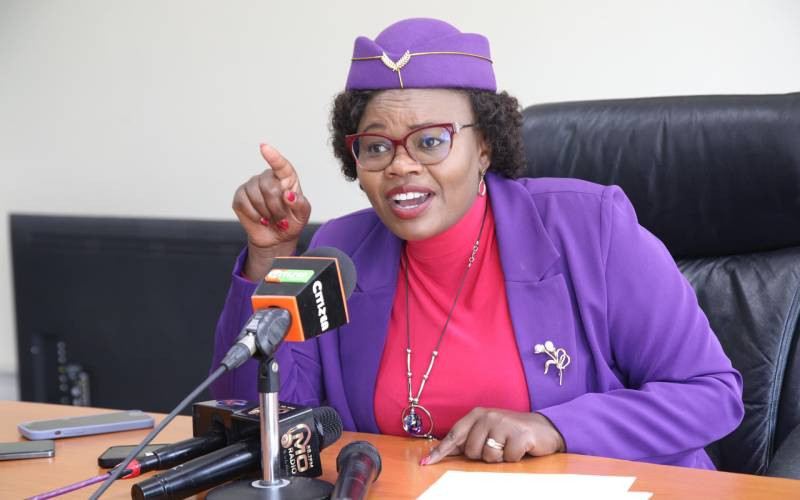Namibia Holds Controversial First Commemoration of German Colonial-Era Genocide - allAfrica.com
Namibia on Wednesday held its first national commemoration for the victims of mass killings by colonial-era German troops, in what is widely recognised as the first genocide of the 20th century. However, some organisations representing victims' descendants have declined to take part.
Between 1904 and 1908, German troops massacred tens of thousands of indigenous Herero and Nama people who rebelled against Germany's rule in the southern African country.
Genocide Remembrance Day was declared a national holiday in Namibia earlier this week, however the date of the commemoration - 28 May - chosen by the central government, is a source of dispute, with communities saying they were not consulted and choosing not to attend the official event marking the genocide.
Historians have also questioned the limited recognition by Germany of its crimes, as the former colonial power has not offered to pay official reparations.
A commemorative ceremony held in the gardens of Namibia's parliament in the capital Windhoek featured a candlelit vigil and a minute of silence. Members of the diplomatic community were expected at the event, where President Netumbo Nandi-Ndaitwah delivered an address.
It is the first event to commemorate the victims of crimes committed in the late 19th and early 20th centuries by what was then the German Empire in South West Africa. An estimated 60,000 Herero and 10,000 Nama people were killed.
Germany ruled the country as a colony between 1884 and 1915. It was then declared a mandated territory by the Treaty of Versailles in 1919.
French director Cédric Djedje shines light on Germany's African colonial history
When first the Herero and then the Nama revolted against the colonial administration, the response from Germany was brutal. An extermination order was sent by the Second Reich, and several concentration camps were built across the country.
Between 1904 and 1908, approximately 80 percent of the Herero people and half of the Nama were exterminated by German forces.
It is a chapter of African history that is still little known worldwide, while German historians specialising in the period have referred to a "colonial amnesia" around it.
The decision to designate a date for a commemoration came after years of difficult negotiations between the German and Namibian governments concluded in December 2024, with the release of a joint declaration recognising the genocide.
The date of 28 May was chosen to mark the closure of the concentration camps by German authorities, following international criticism over barbaric conditions and high death rates - although historians dispute whether this occurred in 1907 or 1908.
Historian Henning Melber of the Nordic Africa Institute, who is affiliated to the University of Pretoria and the University of the Free State in Bloemfontein in South Africa, says that while the announcement of an official Namibian Genocide Memorial Day has been long overdue, the chosen date of 28 May remains controversial.
Roma push France to recognise Holocaust-era genocide
"It shows a little bit of competition among the descendants of victim communities, because from a Nama perspective, they would have preferred another date, while the Herero perspective would also have suggested another date," he told RFI.
"The 28th of May was selected because this was the day in 1908 when the last concentration camps were closed by the German colonial regime. So, to that extent, it's a unifying date, but it does not really reflect the desires and the traumatic experiences of the individual descendants of the victim groups, which also include the Damara."
Organisations representing the Nama, the Herero (also called the Ovaherero) and the Damara communities announced that they would not participate in the official event at the parliament.
"Part of that is due to the fact that they have not been involved, not been consulted," said Melber. "Some of them even claim they have never been informed. Some [also] point out that during the 45 minutes put aside for the event, there are speakers [but] only two represent the affected communities."
"So [from] their perspective," he added, "this is another centralised government event which does not give the due respect and voice to the descendants of the main victim communities."
Controversy also surrounds Germany's recognition of the massacres, as this has not included official reparations.
Germany agreed to pay Namibia €1.1 billion when it officially recognised the Herero-Nama genocide in 2021, in what Angela Merkel's government said was a gesture of reconciliation.

Sign up for free AllAfrica Newsletters
Get the latest in African news delivered straight to your inbox
According to the BBC, this is to be paid in development aid over 30 years, with no mention of the terms "reparations" or "compensation" in the agreement.
France faces pressure at home to admit 1945 colonial massacre of Algerians
Melber believes that in Germany's opinion, Namibia's acceptance of its apology effectively "freed" the former from any obligation to pay official reparations.
"The document signed between the two countries declares that with the signing of the declaration, the issue is settled once and for all, meaning you close the chapter of the trauma," he told RFI.
Furthermore, Melber added, while the document says "that the German government apologises for the atrocities committed, and the Namibian people accept the apology," it does not state which Namibian people are being referred to.
"Neither the Ovaherero nor the Nama nor the Damara have been asked if they accept any apology," he said. "It's simply not good enough for the communities."













